Fast Track Approvals Bill Q&A
Partners
Phone: +64 7 927 0590
Email: mhill@clmlaw.co.nz
Bachelor of Arts, Bachelor of Laws (First Class Honours), University of Canterbury
Master of Commercial Law (First Class Honours), University of Auckland
Special Counsel
Phone: +64 7 927 0522
Email: rzame@clmlaw.co.nz
Bachelor of Laws, Bachelor of Science, University of Otago
Senior Associate
Phone: +64 7 927 0595
Email: KStubbing@clmlaw.co.nz
LLB / BCom, University of Otago
In line with its name, the Fast Track Approvals Bill made haste through its introduction and first reading in Parliament last week. Below we answer some of the key questions on this much anticipated legislation.
What are fast track approvals?
The aim of the fast-track is to create a quicker and more streamlined approval process for the consenting of infrastructure and development projects with significant regional or national benefit. The Government cites the significant time and costs associated with current consent processes for major infrastructure projects as being the impetus for the Bill.
How will consents be “fast-tracked”?
The Bill proposes to speed up the current process through a number of measures, including:
- Setting shorter timeframes for approvals, with an Expert Panel required to make recommendations to the Ministers within 25 working days (with the possibility to extend this by 25 working days). Currently under the standard RMA process, a notified consent with a hearing is allowed up to 130 working days to complete processing. In practice this timeframe is often much longer, particularly for major projects, with the time clock ‘stopped’ for extended periods of time (for further information requests for example).
- Providing a one stop shop for approvals, rather than requiring separate approvals under numerous legislation in addition to the RMA, including the Public Works Act 1981, Reserves Act 1977, Heritage New Zealand Pouhere Taonga Act 2014, and the Conservation Act 1987. Projects involve joint consideration by the Ministers of Transport, Regional Development, Infrastructure, and Conservation (if relevant) (the Ministers).
Who can use the fast-track process?
Unlike the Covid-19 Recovery (Fast-track Consenting) Act 2020, the Bill does not yet include a list of projects pre-approved for the fast-track process. A Fast Track Advisory Group will be set up “in the coming weeks” in tandem with the Bill progressing, to decide which projects will be included in the Bill for automatic referral. Once the Bill comes into force, projects will access the fast-track through application to the Minsters. To be referred to an Expert Panel for consideration, projects must meet a list of eligibility criteria demonstrating (amongst other things) their regional or national benefit, that the fast-track will result in a more expedient process, and that the project is consistent with the purpose of the Bill.
How does the fast-track process work?
Once a proposal is included in the Bill or approved by the Ministers for the fast-track, it is sent to an Expert Panel for consideration. The Panel must assess the proposal against the usual RMA criteria (including plans, policies, the RMA’s purpose, and sections 6, 7, and 8 RMA) but can choose how much weight to give the criteria. The Panel is also required to consider the purpose of the Bill above the purposes and provisions of other Acts, including that of the RMA. The Panel makes a recommendation back to the Minister (including conditions if relevant), with the ultimate decision to decline or approve a proposal sitting with the Ministers.
Who can have their say on a fast-tracked application?
Participation in the fast-track process is limited. The Panel must invite comment from several parties on a project, including local authorities, iwi authorities, Treaty settlement entities, and owners and occupiers of land on which the project is to be undertaken. The Panel may invite comments from other persons they consider appropriate. There is no requirement to hold a hearing on a fast-track application. If the Panel does hold a hearing, only the applicant, experts invited to commission a report by the Panel, and persons invited to comment, may be heard.
What happens to current application under the RMA?
Although the Fast Track Approval Act will repeal the fast-track process currently provided for under the NBEA, if not withdrawn, fast-track applications lodged but not yet determined under the NBEA process will continue to be processed under the NBEA as if it has not been repealed. There are still fast track applications being processed under the Covid legislation as well. An applicant can’t run two processes in parallel, including a current application under the non-fast track process under the RMA. If a developer wants to fast track a proposal they will need to withdraw their standard RMA application and apply for fast tracking.
Can I appeal the decision if I don’t like it?
Appeals on fast track are only possible on points of law, and only by the applicants, commentors, the Attorney General and any person with an interest greater than the general public. The Bill does not limit or affect any right of judicial review.
The Bill is currently with the Environment Select Committee, and will not be following an especially fast-tracked process for approval. Only its introduction was rushed, to meet the Government’s 100 day target. Submissions close on Friday, 19 April 2024. The Select Committee report is due on 7 September 2024.
Latest Update: 13th March 2024







